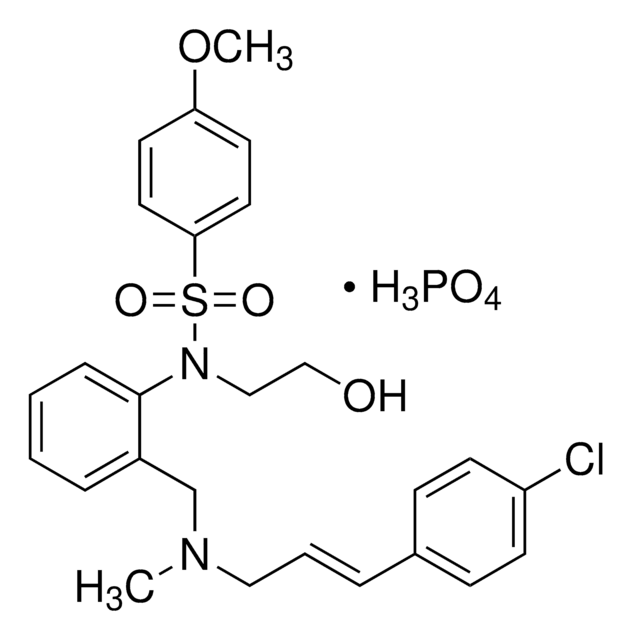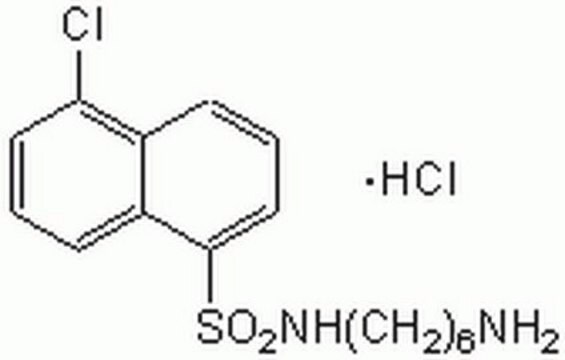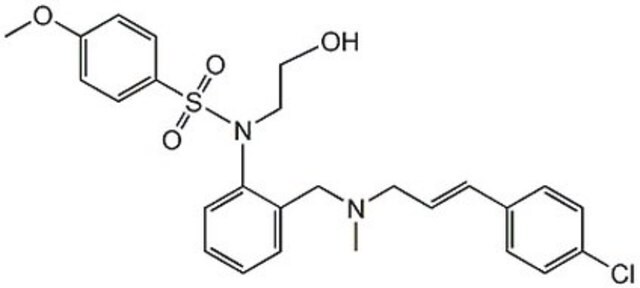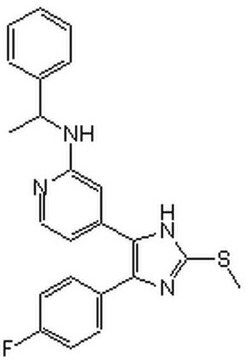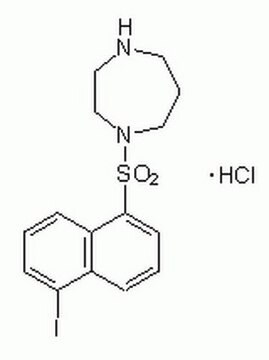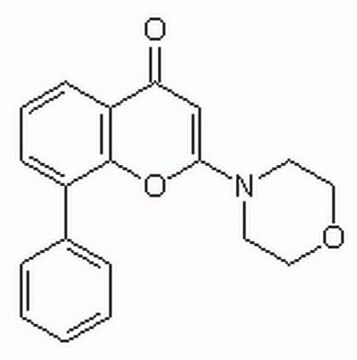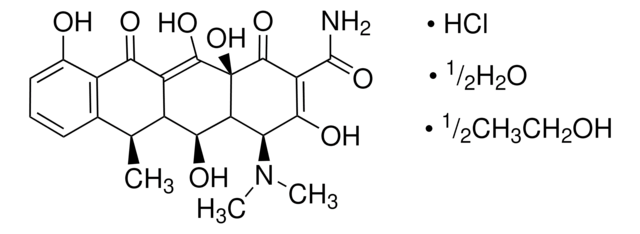422708
KN-93
≥95% (HPLC), solid, CAM kinase II inhibitor, Calbiochem®
Synonym(s):
2-[N-(2-hydroxyethyl)]-N-(4-methoxybenzenesulfonyl)]amino-N-(4-chlorocinnamyl)-N-methylbenzylamine)
About This Item
Recommended Products
Product Name
KN-93, A cell-permeable, reversible and competitive inhibitor of rat brain CaM kinase II (Ki = 370 nM).
Quality Level
Assay
≥95% (HPLC)
form
solid
manufacturer/tradename
Calbiochem®
storage condition
OK to freeze
protect from light
color
off-white
solubility
DMSO: 5 mg/mL
shipped in
ambient
storage temp.
2-8°C
InChI
1S/C26H29ClN2O4S/c1-28(17-5-6-21-9-11-23(27)12-10-21)20-22-7-3-4-8-26(22)29(18-19-30)34(31,32)25-15-13-24(33-2)14-16-25/h3-16,30H,17-20H2,1-2H3/b6-5+
InChI key
LLLQTDSSHZREGW-AATRIKPKSA-N
General description
Biochem/physiol Actions
cam kinase 2
Warning
Reconstitution
Other Notes
Tombes, R.M., et al. 1995. Cell Growth Differ.6, 1063.
Mamiya, N., et al. 1993. Biochem. Biophys. Res. Commun. 195, 608.
Nicki, I., et al. 1993. Biochem. Biophys. Res. Commun.191, 255.
Sumi, M., et al. 1991. Biochem. Biophys. Res. Commun.181, 968.
Tokumitsu, H., et al. 1990. J. Biol. Chem.265, 4315.
Legal Information
Storage Class Code
11 - Combustible Solids
WGK
WGK 3
Flash Point(F)
Not applicable
Flash Point(C)
Not applicable
Certificates of Analysis (COA)
Search for Certificates of Analysis (COA) by entering the products Lot/Batch Number. Lot and Batch Numbers can be found on a product’s label following the words ‘Lot’ or ‘Batch’.
Already Own This Product?
Find documentation for the products that you have recently purchased in the Document Library.
Our team of scientists has experience in all areas of research including Life Science, Material Science, Chemical Synthesis, Chromatography, Analytical and many others.
Contact Technical Service